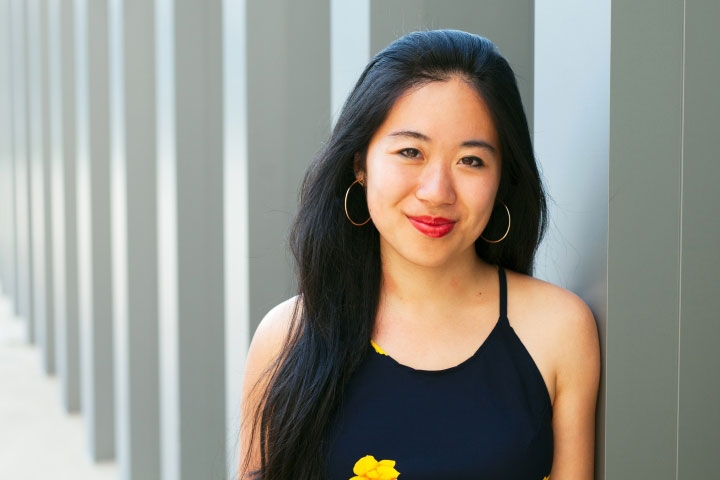
“I am a lion with a black mane, tearing my teeth on the piano bench,” writes Carlina Duan in the opening poem of her 2017 collection “I Wore My Blackest Hair” (Little A, 2017). Her “black mane” is a site of contested cultural identity throughout the collection, both symbolically and literally. It is the part of her body she returns to when her identity is questioned — by others or by herself.
In “I Wore My Blackest Hair,” Duan, who is Chinese-American, grapples with the ways that her appearance shapes and is shaped by her evolving identity. Hair — whether hers or her family members’ — is where feelings of belonging and exclusion physically manifest. It is something concrete, both mutable and essential.
“The first time I was aware of my Asianness was when I asked my mother why I wasn’t blond,” wrote fashion writer Andrea Cheng in her April 2018 New York Times article on Asian-American women who bleach their hair. For Cheng, hair is as much a physical expression of who she is rather than who she is not.
“Of course, my story is not unique,” Cheng wrote. “It’s an experience that’s probably shared by most American-born Asians as we shake off our perceived otherness and strive to prove our Americanness.”
For Duan, this is certainly the case. Her hair is a mediator of her “Asianness,” a metric by which she and others gauge whether she embraces or rejects her heritage.
“My mother is not / from your country, / and I am not / ashamed,” writes Duan in “Pledge Allegiance.” “I slip my hands / through her / wise hair, / and keep.” Here, hair is a physical reminder of Duan’s mother’s culture, and it bridges the divide between them as Duan explores her identity as an Asian-American woman. Duan’s desire to “keep” in these poems — to keep her heritage, her identity, her sense of self — is all the more captivating given the descriptions of earlier dismissals of Chinese culture.
“To replace the languages our mom spoke, we smoked up our Chinese with blond dolls,” she writes in “Little Sister, American Girl.” As a teenager and young adult, Duan’s relationship with her hair and appearance changes with her understanding of what it means to be a young Asian-American woman. This collection does not trace a linear path from repudiation to redemption, but instead tracks moments of both bewilderment and clarity, bestowing both with equal importance.
As she matures, Duan’s sexuality becomes inextricably tied to her Asian-American identity. She interrogates her own experiences of distance and intimacy with a keen awareness of the fraught territory mapped by her own desire.
“A boy plumps his lips on your throat / and asks you to say something dirty / in Chinese,” Duan writes in “Your Mom Tells You To Stop Writing About Race.” She does not stop writing about race, as her mother requests; instead: “you yank your hair / into a knot at the back of your neck” and doubles down on the subjects that preoccupy her.
Duan’s hair is where the line between recognition and fetishization becomes most apparent in her poetry. “he came over. asked, What are you?” Duan writes in “Here I Go, Torching.” “black plains of hair. / plain of mouth, of meat… I’m Chinese; see me,” she continues.
She yearns to be recognized as more than just her heritage without being stripped of it. Hair becomes a bridge to the things she wants but does not know how to ask for. “I want you to untouch my hair,” she says in “I Want My Books Back,” mourning the parts of herself she shared and cannot regain.
Throughout the collection, Duan commits and recommits herself to her world. She is not trying to escape anything — she revels in the tangible, the terrible, the mundane. Her hair is all of these things; it unmasks her when she wants to be hidden and hides her when she wants to be seen. She alternates between introspective and hostile, giving herself room to collect evidence of her own contradictory nature. In the marrow of each poem lies Duan’s abiding appreciation: for herself, for her family, for how the process of understanding her heritage has both taken from her and made her whole.

